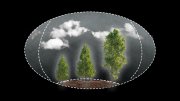In the hands of this man, ideas become living things. An historian of religion who holds joint appointments in the department of anthropology and the Harvard Divinity School, the inaugural Rudenstine professor of the study of Latin America suggests that we live in a world of competing cities. Deeply immersed in the study of Mesoamerican cultures (he is editor in chief of the Oxford Encyclopedia of Mesoamerican Cultures and author, most recently, of City of Sacrifice: The Aztec Empire and the Role of Violence in Civilization), Carrasco says that "the nature of urban hierarchies is, in part, to saturate social and geographical space, to extend their influence beyond their walls, and to draw the productions, ideas, and technology of the hinterlands into themselves." Modern cities exist in an ecumenopolis, a connected, hierarchical network. "What happens in New York affects Tokyo...and Kabul, and vice versa," he explains. Carrasco embodies interdisciplinary study--though he might call it mestizo (mixed) study, using the Spanish term for the hybrid cultures that arose after the Spaniards invaded Mexico and "biological, symbolic, and social exchanges" occurred. He brings a penchant for reaching across borders--intellectual, disciplinary, and cultural--with him to Harvard. The Mesoamerican Archive, containing more than 10,000 images and 3,000 texts, is the physical manifestation of his broad-ranging brand of academic inquiry. The accompanying research project, a "community of conversation" among archaeologists, ethnographers, anthropologists, historians, historians of religions, and archaeoastronomers, has, he says, "created a "collective understanding much larger than any one person could encapsulate."
David Carrasco
David Carrasco
In the hands of this man, ideas become living things. An historian of religion who holds joint appointments in the department of anthropology...
Explore More From Current Issue

Mount Vernon, Historic Preservation, and American Politics
Anne Neal Petri promotes George Washington and historic literacy.




